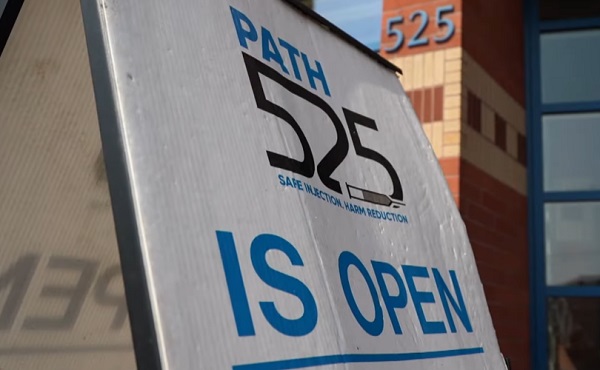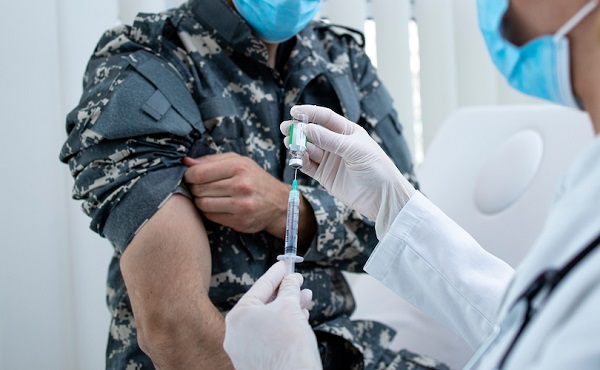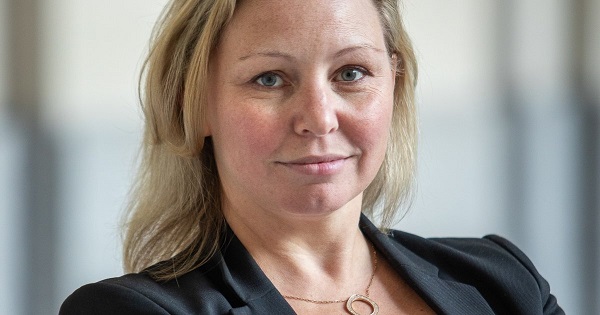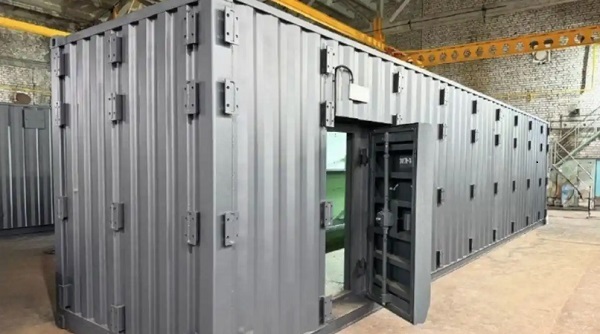Health
Update… Improved And Expanded Health Care Coming To Sylvan Lake… With Full Announcements
By Sheldon Spackman
It’s been six years in the making. Finally, improved and expanded health care for Sylvan Lake. The province has announced it will create an “Advanced Ambulatory Care Clinic” at the Sylvan Lake Community Health Centre.
The long-awaited announcement was made at the Sylvan Lake Municipal Government Building Monday afternoon with numerous dignitaries on hand to celebrate. Among them, Alberta’s Health Minister Sarah Hoffman who says the government will provide $2 Million for start-up costs and renovations to the current health facility. She says work will begin this Spring, with the enhanced facility to open early next year. Hoffman says these enhanced health care services will allow the Advanced Ambulatory Care Clinic at the Sylvan Lake Community Health Centre to offer treatment for urgent care and injuries like stitches and basic fractures up to 16 hours a day / seven days a week. Hoffman says “It’s actually really good timing that when he have a bit of a downturn in the economy, you can stretch your capital money a little bit further and we want to get people working as much as possible, so this is a really good fit time-wise.”
Sylvan Lake Mayor Sean McIntyre says he’s very proud and extremely happy to see this project become a reality, both for the town and surrounding region. He says “It’s been a long road, six years that we’ve been advocating very strongly and persistently for this increase in services and now for that need to be acknowledged and met by the Health Ministry and by Alberta Health Services, we have a lot to celebrate in Sylvan Lake today.” McIntyre also points out how incredible the community has been in supporting this initiative, saying “They’ve been fundraising, they’ve been advocating, writing letters, they’ve been both active and patient with our advocacy efforts and this celebration today really belongs to them!”
Former Sylvan Lake Mayor and current Chair of the Sylvan Lake Urgent Care Committee Susan Samson says it’s almost hard not to cry tears of joy, adding “These services are desperately needed. We’re talking about medical services for non-life threatening injuries and our deal was we were always plugging up the Emergency Rooms at the Red Deer Regional Hospital and at other nearby Emergency Rooms with things that should be treated at home. Things like your child with an ear ache or broken bone or just the simple things. We need to treat them at home and take the pressure off the system and that’s what we’ve got today.” Samson speculates the hours of the new services would likely be roughly 8:00 am to 10:00 pm seven days a week but that’s yet to be decided.
Samson says the first part of the renovations will involve relocating physiotherapy at the Sylvan Lake Community Health Centre, as they have a large, open space that will be easy to work in. Samson adds the community helped raise $197,000 for this project over the past six years. She says it will be turned over to AHS to purchase equipment and be added to the $2 Million the Province is providing.
(Photo by Lindsay Wiebe)
Addictions
Ontario to restrict Canadian government’s supervised drug sites, shift focus to helping addicts

From LifeSiteNews
Doug Ford’s Progressive Conservative government tabled the Safer Streets, Stronger Communities Act that will place into law specific bans on where such drug consumption sites are located.
Ontario Premier Doug Ford is making good on a promise to close so-called drug “supervision” sites in his province and says his government will focus on helping addicts get better instead of giving them free drugs.
Ford’s Progressive Conservative government on Monday tabled the Safer Streets, Stronger Communities Act that will place into law specific bans on where such drug consumption sites are located.
Specifically, the new bill will ban “supervised” drug consumption sites from being close to schools or childcare centers. Ten sites will close for now, including five in Toronto.
The new law would prohibit the “establishment and operation of a supervised consumption site at a location that is less than 200 meters from certain types of schools, private schools, childcare centers, Early child and family centers and such other premises as may be prescribed by the regulations.”
It would also in effect ban municipalities and local boards from applying for an “exemption from the Controlled Drugs and Substances Act (Canada) for the purpose of decriminalizing the personal possession of a controlled substance or precursor.”
Lastly, the new law would put strict “limits” on the power municipalities and local boards have concerning “applications respecting supervised consumption sites and safer supply services.”
“Municipalities and local boards may only make such applications or support such applications if they have obtained the approval of the provincial Minister of Health,” the bill reads.
The new bill is part of a larger omnibus bill that makes changes relating to sex offenders as well as auto theft, which has exploded in the province in recent months.
In September, Ford had called the federal government’s lax drug policies tantamount to being the “biggest drug dealer in the entire country” and had vowed to act.
‘No’ new drug sites in Ontario, vows Health Minister
In speaking about the new bill, Ontario Minister of Health Sylvia Jones said the Ford government does not plan to allow municipal requests to the government regarding supervised consumption sites.
“Municipalities and organizations like public health units have to first come to the province because we don’t want them bypassing and getting any federal approval for something that we vehemently disagree with,” Jones told the media on Monday.
She also clarified that “there will be no further safe injection sites in the province of Ontario under our government.”
Ontario will instead create 19 new intensive addiction recovery to help those addicted to deadly drugs.
Alberta and other provinces have had success helping addicts instead of giving them free drugs.
As reported by LifeSiteNews, deaths related to opioid and other drug overdoses in Alberta fell to their lowest levels in years after the Conservative government began to focus on helping addicts via a recovery-based approach instead of the Liberal-minded, so-called “safe-supply” method.
Despite public backlash with respect to supervised drug consumption sites, Health Canada recently approved 16 more drug consumption sites in Ontario. Ford mentioned in the press conference that each day he gets “endless phone calls about needles being in the parks, needles being by the schools and the daycares,” calling the situation “unacceptable.”
The Liberals claim their “safer supply” program is good because it is “providing prescribed medications as a safer alternative to the toxic illegal drug supply to people who are at high risk of overdose.”
However, studies have shown that these programs often lead an excess of deaths from overdose in areas where they are allowed.
While many of the government’s lax drug policies continue, they have been forced to backpedal on some of their most extreme actions.
After the federal government allowed British Columbia to decriminalize the possession of hard drugs including heroin, cocaine, fentanyl, meth and MDMA beginning January 1, 2023, reports of overdoses and chaos began skyrocketing, leading the province to request that Trudeau re-criminalize drugs in public spaces.
A week later, the federal government relented and accepted British Columbia’s request.
Alberta
Early Success: 33 Nurse Practitioners already working independently across Alberta

Nurse practitioners expand primary care access |
The Alberta government’s Nurse Practitioner Primary Care program is showing early signs of success, with 33 nurse practitioners already practising independently in communities across the province.
Alberta’s government is committed to strengthening Alberta’s primary health care system, recognizing that innovative approaches are essential to improving access. To further this commitment, the Nurse Practitioner Primary Care Program was launched in April, allowing nurse practitioners to practise comprehensive patient care autonomously, either by operating their own practices or working independently within existing primary care settings.
Since being announced, the program has garnered a promising response. A total of 67 applications have been submitted, with 56 approved. Of those, 33 nurse practitioners are now practising autonomously in communities throughout Alberta, including in rural locations such as Beaverlodge, Coaldale, Cold Lake, Consort, Morley, Picture Butte, Three Hills, Two Hills, Vegreville and Vermilion.
“I am thrilled about the interest in this program, as nurse practitioners are a key part of the solution to provide Albertans with greater access to the primary health care services they need.”
To participate in the program, nurse practitioners are required to commit to providing a set number of hours of medically necessary primary care services, maintain a panel size of at least 900 patients, offer after-hours access on weekends, evenings or holidays, and accept walk-in appointments until a panel size reaches 900 patients.
With 33 nurse practitioners practising independently, about 30,000 more Albertans will have access to the primary health care they need. Once the remaining 23 approved applicants begin practising, primary health care access will expand to almost 21,000 more Albertans.
“Enabling nurse practitioners to practise independently is great news for rural Alberta. This is one more way our government is ensuring communities will have access to the care they need, closer to home.”
“Nurse practitioners are highly skilled health care professionals and an invaluable part of our health care system. The Nurse Practitioner Primary Care Program is the right step to ensuring all Albertans can receive care where and when they need it.”
“The NPAA wishes to thank the Alberta government for recognizing the vital role NPs play in the health care system. Nurse practitioners have long advocated to operate their own practices and are ready to meet the growing health care needs of Albertans. This initiative will ensure that more people receive the timely and comprehensive care they deserve.”
The Nurse Practitioner Primary Care program not only expands access to primary care services across the province but also enables nurse practitioners to practise to their full scope, providing another vital access point for Albertans to receive timely, high-quality care when and where they need it most.
Quick facts
- Through the Nurse Practitioner Primary Care Program, nurse practitioners receive about 80 per cent of the compensation that fee-for-service family physicians earn for providing comprehensive primary care.
- Compensation for nurse practitioners is determined based on panel size (the number of patients under their care) and the number of patient care hours provided.
- Nurse practitioners have completed graduate studies and are regulated by the College of Registered Nurses of Alberta.
- For the second consecutive year, a record number of registrants renewed their permits with the College of Registered Nurses of Alberta (CRNA) to continue practising nursing in Alberta.
- There were more than 44,798 registrants and a 15 per cent increase in nurse practitioners.
- Data from the Nurse Practitioner Primary Care Program show:
- Nine applicants plan to work on First Nations reserves or Metis Settlements.
- Parts of the province where nurse practitioners are practising: Calgary (12), Edmonton (five), central (six), north (three) and south (seven).
- Participating nurse practitioners who practise in eligible communities for the Rural, Remote and Northern Program will be provided funding as an incentive to practise in rural or remote areas.
- Participating nurse practitioners are also eligible for the Panel Management Support Program, which helps offset costs for physicians and nurse practitioners to provide comprehensive care as their patient panels grow.
Related information
-

 Aristotle Foundation2 days ago
Aristotle Foundation2 days agoToronto cancels history, again: The irony and injustice of renaming Yonge-Dundas Square to Sankofa Square
-

 conflict2 days ago
conflict2 days agoUS and UK authorize missile strikes into Russia, but are we really in danger of World War III?
-

 Business1 day ago
Business1 day agoCBC’s business model is trapped in a very dark place
-

 armed forces1 day ago
armed forces1 day agoJudge dismisses Canadian military personnel’s lawsuit against COVID shot mandate
-

 Energy1 day ago
Energy1 day agoWhat does a Trump presidency means for Canadian energy?
-

 International1 day ago
International1 day agoElon Musk, Vivek Ramaswamy Outline Sweeping Plan to Cut Federal Regulations And Staffing
-

 conflict2 days ago
conflict2 days agoPutin Launches Mass-Production of Nuclear Shelters for his People
-

 Alberta19 hours ago
Alberta19 hours agoAlberta fiscal update: second quarter is outstanding, challenges ahead





